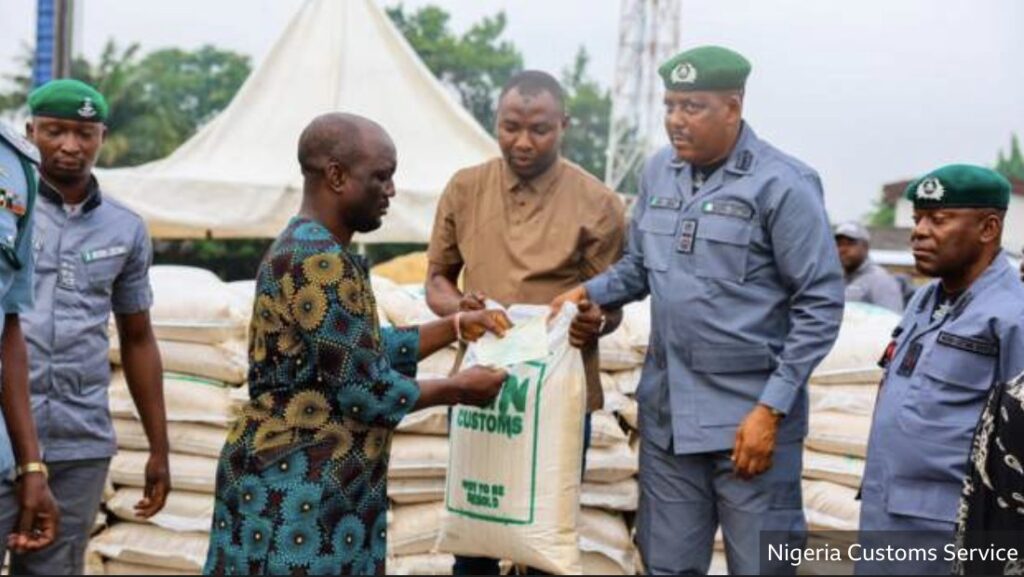riday saw a swarm of Nigerians head to the Nigerian Customs office in Yaba, Lagos, all with hopes of taking part in the latest “lucky dip” trend, as they scrambled to secure a bag of 25kg rice amid the worsening hunger crisis in the country. Despite a N10,000 fee, people from all walks of life, civilians and uniformed personnel alike, lined up under the sweltering sun for a chance to obtain the staple commodity.
This phenomenon, dubbed the Customs “rice bazaar,” serves as a stark reminder of the country’s dire food insecurity. It symbolizes a unity transcending ethnic and tribal divides, yet highlights the sheer desperation of Nigerians to secure basic sustenance. A distressing scenario unfolds, where even individuals in uniform, sworn to serve and protect, find themselves drawn to the promise of a humble bag of rice.
It is a deeply concerning situation in a country endowed with an abundance of resources, both natural and human. Citizens stand under the blazing sun, sometimes even facing coercive measures, all for a small measure of sustenance that was taken for granted. This recent trend reflects the staggering hardships Nigerians endure, amplifying the concerns raised during the COVID-19 pandemic when citizens resorted to breaking into government warehouses to obtain hoarded relief supplies.
It is apparent that the Federal Government can no longer ignore the genuine plight of its citizens, nor can it dismiss their sufferings as mere political rhetoric. The opposition, for its part, would not manipulate food scarcity for political gain. The stark reality is that the promised palliatives, with few exceptions, remain elusive, exacerbating the challenges facing everyday Nigerians.
While our leaders indulge in opulent luxury, driving imported cars and enjoying substantial financial benefits, the masses are left with the crumbs. The illusion of palliatives trickles down as another giveaway, while the government initiates cash transfers to the “vulnerable” population, relying on a discredited national register that had previously deceived many under the previous administration.
Rather than focusing on policies that drive national productivity and sustainable wealth, the government perpetuates reliance on handouts, leading to a culture of dependency. This has resulted in a downward spiral for manufacturers, struggling with increased tariffs on raw materials.
Furthermore, our seaports are littered with abandoned cargo, as importers struggle with tariffs, affecting the availability of essential goods in the country. Amidst this, the Nigeria Customs Service remains profitable for the government, while opportunistic officials exploit the system, leaving the masses to bear the brunt of the consequences.
Three months on, the promised solutions remain on paper, and the hunger crisis intensifies. Security challenges have forced farmers to flee their lands, leaving food baskets empty. Meanwhile, the few available food items are either hoarded or smuggled out of the country.
This calamity must not persist. The authorities must urgently address the root causes of food scarcity to prevent Nigerians from becoming refugees in their own land. There is an abundance of agricultural resources that can be harnessed. It is imperative that the government takes swift and decisive action before the situation spirals out of control.










More Stories
Bringing Life to Ajaokuta Steel Company
Reconsidering the cybersecurity levy
Tinubunomics: what’s working, what’s not, why and way forward